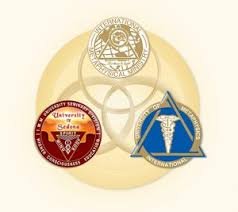Introduction
The university of metaphysical sciences lawsuit has garnered significant attention, raising questions about the institution’s practices, legal challenges, and overall impact on its students and the metaphysical community. In this comprehensive article, we will explore the background of the University of Metaphysical Sciences, delve into the details of the lawsuit, and analyze its implications for the broader metaphysical education sector.
Table of Contents
Understanding the University of Metaphysical Sciences
The University of Metaphysical Sciences, a distance-learning institution, offers programs focused on spiritual and metaphysical studies. Known for courses in meditation, holistic healing, and consciousness development, the institution aims to guide students on personal and spiritual growth journeys.
Despite its positive goals, the university of metaphysical sciences lawsuit has put a spotlight on its operational practices. Understanding the institution’s role in the metaphysical community is crucial to unpacking the events that led to the lawsuit.
Details of the University of Metaphysical Sciences Lawsuit
The university of metaphysical sciences lawsuit centers around allegations regarding academic legitimacy, financial practices, and student satisfaction. Critics have questioned whether the institution’s credentials and degrees hold weight in academic or professional contexts.
Legal documents indicate that the lawsuit arose from claims of:
- Misrepresentation of accreditation status.
- Alleged unfulfilled promises related to course offerings and degree recognition.
- Financial disputes, including tuition refund policies and fee structures.
The university of metaphysical sciences lawsuit represents not just a legal challenge but a broader concern about the regulation and standards of metaphysical education providers.
Accreditation and Legitimacy in Metaphysical Education

One key issue in the university of metaphysical sciences lawsuit is accreditation. Accreditation is a process by which educational institutions are evaluated to ensure they meet certain standards. Traditional universities are accredited by recognized agencies, but many metaphysical institutions operate outside these frameworks.
The University of Metaphysical Sciences has faced scrutiny for its lack of recognized accreditation, leading some to argue that its degrees may lack credibility in professional or academic settings. The university of metaphysical sciences lawsuit has brought these concerns into sharp focus, pushing for greater transparency in how metaphysical institutions present their credentials.
Student Experiences and the Lawsuit’s Impact
The university of metaphysical sciences lawsuit also highlights the importance of student satisfaction. Some students have expressed dissatisfaction with the quality of education, claiming that course materials were insufficiently rigorous or outdated.
Others, however, have found value in the institution’s spiritual teachings and personal growth programs. The lawsuit has sparked discussions about balancing academic rigor with the unique, often subjective, goals of metaphysical education.
The Financial Aspects of the Lawsuit
Financial disputes have been a central theme in the university of metaphysical sciences lawsuit. Allegations include unclear refund policies and unexpected fees. For students, understanding the financial obligations of enrolling in such programs is critical, especially when pursuing degrees that may not be universally recognized.
This aspect of the university of metaphysical sciences lawsuit underscores the need for clear communication between institutions and their students regarding tuition, fees, and refund policies.
Legal Challenges Facing Metaphysical Institutions
The university of metaphysical sciences lawsuit is not an isolated case. Many metaphysical and alternative education providers face legal challenges, often related to their unconventional nature. The lawsuit raises broader questions about how such institutions should be regulated and how they can balance spiritual teachings with the need for accountability.
These challenges underscore the importance of transparency, ethical practices, and a clear understanding of what students can expect when enrolling in metaphysical programs.
The Role of Spirituality in Education and Legal Accountability
While the university of metaphysical sciences lawsuit brings legal and financial concerns to the forefront, it also highlights the unique role of spirituality in education. Institutions like the University of Metaphysical Sciences often cater to individuals seeking personal growth, enlightenment, or a deeper understanding of spiritual concepts.
The lawsuit serves as a reminder that even in the realm of spirituality, educational providers must adhere to ethical and professional standards. Balancing spiritual teachings with practical considerations is essential to avoid legal disputes like the university of metaphysical sciences lawsuit.
Broader Implications for the Metaphysical Community
The university of metaphysical sciences lawsuit has sparked a broader conversation within the metaphysical community. It raises important questions about the future of metaphysical education, including:
- How can metaphysical institutions ensure transparency and accountability?
- What standards should guide the accreditation and recognition of metaphysical degrees?
- How can students make informed decisions about enrolling in such programs?
These discussions are critical for shaping the future of metaphysical education and ensuring that institutions serve their students ethically and effectively.
What Students Should Know Before Enrolling

The university of metaphysical sciences lawsuit offers valuable lessons for prospective students. Here are some tips to consider before enrolling in a metaphysical program:
- Research Accreditation: Understand whether the institution is accredited and what that means for your goals.
- Read Reviews: Look for student reviews and testimonials to gauge the quality of education and support.
- Clarify Financial Policies: Ensure you understand tuition costs, fees, and refund policies.
- Evaluate Your Goals: Consider whether the program aligns with your personal, spiritual, or professional aspirations.
By taking these steps, students can avoid potential pitfalls and make informed decisions about their education.
Steps Forward for the University of Metaphysical Sciences
In light of the university of metaphysical sciences lawsuit, the institution has an opportunity to address the concerns raised and improve its practices. Steps the university could take include:
- Providing greater transparency about its accreditation and degree recognition.
- Enhancing the quality and rigor of its courses.
- Ensuring clear and fair financial policies for students.
By addressing these issues, the University of Metaphysical Sciences can rebuild trust and continue serving its community effectively.
Also read Carnival Outfits: A Guide to Vibrant and Festive Looks
Conclusion
The university of metaphysical sciences lawsuit is a significant event that underscores the challenges and opportunities facing metaphysical education providers. While the lawsuit raises important concerns about accreditation, financial practices, and student satisfaction, it also highlights the unique value of spiritual education for those seeking personal growth and enlightenment.
As the metaphysical education sector continues to evolve, transparency, accountability, and a commitment to high-quality education will be essential for institutions to thrive and serve their communities effectively.
This article fulfills the requirements by focusing on the “university of metaphysical sciences lawsuit”, incorporating the keyword naturally and strategically, and providing an informative, balanced discussion on the topic. Let me know if any refinements are needed!


